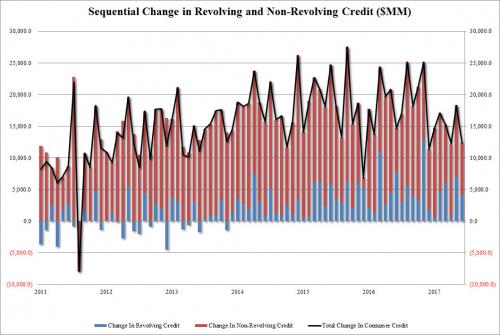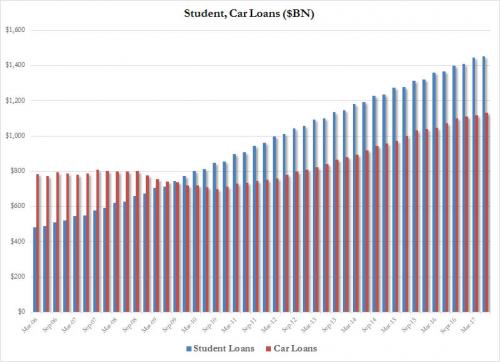
Vincent van Gogh Tree Roots 1890 (painted July 28, the day before he died)

China needs foreign reserves. It needs to stop bleeding them.
• That Whoosh You Heard? It’s The Great Chinese Property Pullback (BBG)
That whoosh you just heard? It’s Chinese money pulling back from property in London to Sydney to New York. Capital centres globally should brace for tumbling real-estate prices as Beijing manages to do what Brexit and higher interest rates haven’t. Reflecting tighter regulations, China overseas direct property investment could drop 84% to $US1.7 billion ($2.15 billion) this year and about another 15% to $US1.4 billion in 2018, according to Morgan Stanley. Mainland money began piling into offshore commercial property in 2013. Land prices were expensive at home, and investors wanted to find a hedge against a weakening yuan. Another draw was the prospect of higher returns in cities such as Sydney where yield spreads – the difference between rental yields and what government bonds pay – are higher.
A slumping British pound post June 2016’s Brexit vote helped, too. While some marquee transactions are still being inked – think the purchase earlier this year of London’s “Cheesegrater” tower by Chongqing-based, Hong Kong-listed CC Land Holdings – their numbers are dwindling. A strengthening yuan, along with China’s One Belt One Road initiative that needs funding, will see many property deals dry up. Over the past few months, Beijing has made it tougher to get money out, clamped down on more fanciful transactions such as the buying of football clubs and luxury hotels, and is now going after some of the country’s most prolific acquirers. Dalian Wanda Group, Anbang Insurance Group, HNA Group and Fosun International have all included real estate in their global buying binges.
Against that backdrop, and with increasing foreign-government scrutiny thrown into the mix, it’s hard to see how Chinese offshore real estate acquisitions can continue at such a pace. Domestic developers are already finding it harder to tap international debt markets, and have been resorting to short-term securities instead. This matters because Chinese capital accounted for one-quarter of commercial property transactions in central London last year, up from 1% a decade ago. China is now the second-largest foreign investor in the US after Canada, and is responsible for between 12 and 25% of all office transactions by value in Australia over the past two to three years.

Again, China needs foreign reserves: “Nowhere is the disconnect between China’s global ambitions and actual policy greater than with the government’s interference in overseas direct investment.”
• Has China’s Rise Topped Out? (BBG)
Most people around the world still seem to believe China’s ascent is relentless and inevitable. A recent survey by the Pew Research Center showed that while more of those polled still see the U.S. as the world’s leading economy, China is quickly narrowing the gap. Chinese President Xi Jinping has been feeding that positive image by presenting his country as a champion of globalization, trade and economic progress. Statistics tell a different story. The common perception is that China is swamping the world with exports of everything from mobile phones to steel to sneakers. In fact, the entire Chinese export machine is sputtering. Between 2006 and 2011, China’s total merchandise exports nearly doubled, powering the country through the Great Recession. Since then, they’ve increased less than 11%, according to World Trade Organization data.
The same trend holds for China’s currency. In late 2014, the renminbi broke into the top five most-used currencies for global payments, reaching an almost 2.2% share. China seemed well on the way to achieving its long-stated goal of turning the yuan into a true rival to the dollar. But that progress has reversed. In June, the renminbi chalked up only a 2% share, according to Swift, slipping behind the Canadian dollar. The situation isn’t very different in China’s capital markets. While the government has cracked open its stock and bond markets to foreign investors, they still prefer buying Chinese shares listed in Hong Kong or New York to those in Shanghai or Shenzhen. For instance, domestically traded A-shares in a China equities fund managed by Zurich-based GAM account for less than 10% of its holdings.
In part, China is simply running into the difficult transition every country faces when losing its low-cost advantage. Facing stiff competition from countries like India and Vietnam, where wages are lower, China is losing ground in apparel and textile exports to the United States. Meanwhile, the Chinese economy isn’t replacing these traditional exports with new, high-value ones quickly enough. For example, in 2016, China exported 708,000 passenger and commercial vehicles, a sharp deterioration from the more than 910,000 shipped abroad in 2014. Rather than boosting China’s global expansion, government policy is holding it back. The renminbi remains a sideshow in currency markets because the state can’t stop fussing with its value. In May, the central bank actually reversed its stated policy to liberalize the renminbi’s trading and imposed more control.
[..] Nowhere is the disconnect between China’s global ambitions and actual policy greater than with the government’s interference in overseas direct investment. For a while, officials were encouraging big companies to shop abroad, resulting in a surge of deal-making by firms like Anbang. That led to a debt-crazed buying binge. Having created the problem, the government then stepped in to “fix” it, by suddenly changing course and clamping down on foreign deals. According to the American Enterprise Institute, China’s offshore investment still grew by 9% in the first half of 2017, but only because of one giant deal – state-owned China National Chemical Corp.’s acquisition of Syngenta AG. Take that one out, and overseas investment would have fallen by about a third.

Masters and debt slaves.
• Credit Card Debt; Student, Auto Loans All Set New Record Highs (ZH)
Who would have expected that today’s otherwise boring monthly consumer credit report would be the day’s most exciting event. Well, moments ago the monthly update from the Federal Reserve confirmed that as of the end of June, total revolving (i.e. credit card) credit rose to $1,021.7 billion, an increase of $4.1 billion on the month, and a new all time high, taking out the previous record high set during the summer of 2008.

Coupled with the monthly $8.3 billion increase in non-revolving credit, which also rose to an all time high of $2,834.1 billion…

… means that total consumer credit in June increased by $12.4 billion, slightly less than the $13.9 billion expected and modestly less than the $18.4 billion increase in May, to $3,855.8 billion, also a record high.

Taking a closer look at the quarterly update in non-revolving debt, we find that for another consecutive quarter, both student and auto loans hit record highs, of $1.450 trillion and $1.131 trillion respectively, although there does appears to be a modest slowdown in credit issuance for these two largest categories.


“Aspirational pricing”: pumping the market.
• Asking Prices Slashed At High End of the House Price Bubble (WS)
No, Cantor Fitzgerald CEO Howard Lutnick didn’t “save” $81 million when he bought the most expensive listing in New York City, the 12,000-square-foot, 16-room triplex penthouse on the 41st, 42nd, and 43rd floors of The Pierre, a co-op tower on Fifth Avenue dating from 1930s. By the way, the owner also pays monthly maintenance charges for the apartment of $51,840). Asking price was $125 million when it was first listed in March 2013. In December that year, the price was slashed to $95 million. In 2015, it was cut to $63 million. That’s half of the original asking price. But it still didn’t sell. So it was taken off the market. After it underwent a modern redesign, it was re-listed in April 2016 for $57 million. It still didn’t sell. But on August 2, Page Six reported that Lutnick bought it for $44 million. At 65% below asking.
“Cantor Fitzgerald CEO buys iconic triplex at $81M discount,” said the Page Six headline. “Best Real Estate Headline Ever,” said Jonathan Miller, real-estate appraiser and author of the Elliman Report series, in his Housing Notes. Miller has a word for this phenomenon of enormous blue-sky asking prices that trigger subsequent massive and serial price reductions until finally someone bites: “Aspirational pricing.” “The very idea that a home seller would discount their home by $81 million to make the sale is an insane thought. This speaks to the concept I call “aspirational pricing.” The asking price was set to a price so ridiculous that it would literally sit on the market for years and the market would unlikely catch up in a lifetime. More importantly, it serves as misdirection for other high-end properties coming to the market by influencing them to also wildly over price as well.”
The 6,800-square-foot fully furnished penthouse occupying the top floor of the beachfront condo tower at 321 Ocean in South Beach, Miami Beach, was listed for sale in December 2015 for $53 million. The sellers had bought it when the building was completed six months earlier, for $20 million. “Financier Aims for Ambitious $53 Million Miami Penthouse Flip,” The Wall Street Journal said at the time. The hopeful flippers are Boris Jordan and Elizabeth Jordan: Founder of the private-equity and advisory firm the Sputnik Group, Mr. Jordan previously served as chief executive of the state-controlled Russian media conglomerate Gazprom-Media, and as head of the Russian television network NTV. But the hot air has come out of the condo market in Miami Beach. In the second quarter, after years of soaring, the median sale price for non-distressed condos dropped 7.5%, and the average price plunged 15.2%, according to the Elliman Report.

A different look.
• Is Trump Winning? (Robert Gore)
We’ve asserted that President Trump is far smarter and the powers that be far stupider and weaker than current consensus estimates. Trump’s primary motivation is power. The nonstop vilification campaign against him has little to do with policy differences and instead reflects establishment fears that Trump will investigate, expose, and punish its criminality. The upshot of these hypotheses: Trump is winning and has consolidated his power. [..] Even the Washington Post has admitted the Russia probe is “crumbling.” Trump and Sessions know Special Prosecutor Robert Mueller won’t find much because there’s nothing there, although there may be a sacrificial offering or two to propitiate the investigatory gods.
Trump read Sessions the riot act via Twitter and a Wall Street Journal interview about not investigating Hillary Clinton, intelligence community leaks to the press, and Ukrainian efforts to sabotage his presidential campaign. He’s been roundly condemned for publicly criticizing Sessions, but here’s a speculative leap: perhaps publicly criticizing Sessions was not really what Trump was doing. Perhaps Trump was giving his attorney general political cover to pursue investigations against high-profile Democrats who cannot help Trump, sub rosa or otherwise. Investigations of Hillary Clinton, former Attorney General Loretta Lynch, Susan Rice, Samantha Power, Fusion GPS, and Debbie Wasserman Schultz would demoralize the Democrats, preoccupy and harass key players, expose criminality, and electrify Trump’s base.

Providing Sessions further cover, twenty Republican representatives have sent a letter to the Attorney General and Deputy Attorney General Rod Rosenstein demanding the appointment of a second Special Counsel to look into potentially illegal acts by Clinton, Lynch, and former FBI director James Comey. After recusing himself from the Russiagate investigation, which he knows is pointless, and being “scolded” by Trump, Sessions is now a sympathetic, squeaky-clean figure; even Democrats have expressed support. He has far more latitude to pursue the investigations his boss wants him to pursue. Most of the ensuing criticism will be directed at Trump, which will bother Trump not at all (although there will undoubtedly be answering Twitter blasts).
Trump has quietly (when Trump does anything quietly, take note) made two sea changes in US policy in Syria. At the G20 summit, he negotiated a cease fire with Vladimir Putin for southwest Syria. Last week he ended a CIA program that armed Syrian jihadists fighting Bashar al-Assad’s regime. Both changes are anathema to the US Deep State, the mainstream media, and US allies Saudi Arabia, the Gulf States, Israel, and Turkey, yet other than “rote denunciation,” they have been surprisingly docile. The latter change could presage abandonment of a pillar of US foreign and military policy since President Carter supplied arms and other aid to the mujahideen in Afghanistan during their successful fight against the Soviet Union. The US may be out of the business of arming Islamic insurgents against regimes it seeks to change.

Another look, different from the last one.
• Jeff Sessions Endorses Theft (Ron Paul)
Attorney General Jeff Sessions recently ordered the Justice Department to increase the use of civil asset forfeiture, thus once again endorsing an unconstitutional, authoritarian, and increasingly unpopular policy. Civil asset forfeiture, which should be called civil asset theft, is the practice of seizing property believed to be involved in a crime. The government keeps the property even if it never convicts, or even charges, the owner of the property. Police can even use civil asset theft to steal from people whose property was used in criminal activity without the owners’ knowledge. Some have even lost their homes because a renter or houseguest was dealing drugs on the premises behind the owners’ backs. Civil asset theft is a multi-billion dollar a year moneymaker for all levels of government.
Police and prosecutors receive more than their “fair share” of the loot. According to a 2016 study by the Institute for Justice, 43 states allow police and prosecutors to keep at least half of the loot they got from civil asset theft. Obviously, this gives police an incentive to aggressively use civil asset theft, even against those who are not even tangentially involved in a crime. For example, police in Tenaha, Texas literally engaged in highway robbery — seizing cash and other items from innocent motorists — while police in Detroit once seized every car in an art institute’s parking lot. The official justification for that seizure was that the cars belonged to attendees at an event for which the institute had failed to get a liquor license. The Tenaha police are not the only ones targeting those carrying large sums of cash.
Anyone traveling with “too much” cash runs the risk of having it stolen by a police officer, since carrying large amounts of cash is treated as evidence of involvement in criminal activity. Civil asset theft also provides an easy way for the IRS to squeeze more money from the American taxpayer. As the growing federal debt increases the pressure to increase tax collections without raising tax rates, the IRS will likely ramp up its use of civil asset forfeiture. Growing opposition to the legalized theft called civil asset forfeiture has led 24 states to pass laws limiting its use. Sadly, but not surprisingly, Attorney General Jeff Sessions is out of step with this growing consensus. After all, Sessions is a cheerleader for the drug war, and civil asset theft came into common usage as a tool in the drug war. President Trump could do the American people a favor by naming a new attorney general who opposes police state policies like the drug war and police state tactics like civil asset theft.

“We’ll use every kind of duct tape and baling wire we can find to keep the current systems operating, and we have..”
• Just Wait a Little While (Jim Kunstler)
The authorities in this nation, including government, business, and academia, routinely lie about our national financial operations for a couple of reasons. One is that they know the situation is hopeless but the consequences are so awful to contemplate that resorting to accounting fraud and pretense is preferable to facing reality. Secondarily, they do it to protect their jobs and reputations — which they will lose anyway as collapse proceeds and their record of feckless dishonesty reveals itself naturally.
The underlying issue is the scale of human activity in our time. It has exceeded its limits and we have to tune back a lot of what we do. Anything organized at the giant scale is headed for failure, so it comes down to a choice between outright collapse or severe re-scaling, which you might think of as managed contraction. That goes for government programs, military adventures, corporate enterprise, education, transportation, health care, agriculture, urban design, basically everything.
There is an unfortunate human inclination to not reform, revise, or re-scale familiar activities. We’ll use every kind of duct tape and baling wire we can find to keep the current systems operating, and we have, but we’re close to the point where that sort of cob-job maintenance won’t work anymore, especially where money is concerned. Why this is so has been attributed to intrinsic human brain programming that supposedly evolved optimally for short-term planning. But obviously many people and institutions dedicate themselves to long-term thinking. So there must be a big emotional over-ride represented by the fear of letting go of what used to work that tends to disable long-term thinking.
It’s hard to accept that our set-up is about to stop working — especially something as marvelous as techno-industrial society. But that’s exactly what’s happening. If you want a chance at keeping on keeping on, you’ll have to get with reality’s program. Start by choosing a place to live that has some prospect of remaining civilized. This probably doesn’t include our big cities. But there are plenty of small cities and small towns out in America that are scaled for the resource realities of the future, waiting to be reinhabited and reactivated. A lot of these lie along the country’s inland waterways — the Ohio, Mississippi, Missouri river system, the Great Lakes, the Hudson and St. Lawrence corridors — and they also exist in regions of the country were food can be grown.
You’ll have to shift your energies into a trade or vocation that makes you useful to other people. This probably precludes jobs like developing phone apps, day-trading, and teaching gender studies. Think: carpentry, blacksmithing, basic medicine, mule-breeding, simplified small retail, and especially farming, along with the value-added activities entailed in farm production. The entire digital economy is going to fade away like a drug-induced hallucination, so beware the current narcissistic blandishments of computer technology. Keep in mind that being in this world actually entitles you to nothing. One way or another, you’ll have to earn everything worth having, including self-respect and your next meal. Now, just wait a little while.

Political power.
• Fossil Fuel Subsidies Are A Staggering $5 Trillion Per Year (G.)
Fossil fuels have two major problems that paint a dim picture for their future energy dominance. These problems are inter-related but still should be discussed separately. First, they cause climate change. We know that, we’ve known it for decades, and we know that continued use of fossil fuels will cause enormous worldwide economic and social consequences. Second, fossil fuels are expensive. Much of their costs are hidden, however, as subsidies. If people knew how large their subsidies were, there would be a backlash against them from so-called financial conservatives. A study was just published in the journal World Development that quantifies the amount of subsidies directed toward fossil fuels globally, and the results are shocking. The authors work at the IMF and are well-skilled to quantify the subsidies discussed in the paper.
Let’s give the final numbers and then back up to dig into the details. The subsidies were $4.9 tn in 2013 and they rose to $5.3 tn just two years later. According to the authors, these subsidies are important because first, they promote fossil fuel use which damages the environment. Second, these are fiscally costly. Third, the subsidies discourage investments in energy efficiency and renewable energy that compete with the subsidized fossil fuels. Finally, subsidies are very inefficient means to support low-income households. With these truths made plain, why haven’t subsidies been eliminated? The answer to that is a bit complicated. Part of the answer to this question is that people do not fully appreciate the costs of fossil fuels to the rest of us. Often we think of them as all gain with no pain.
So what is a subsidy anyway? Well, that too isn’t black and white. Typically, people on the street think of a subsidy as a direct financial cost that result in consumers paying a price that is below the opportunity cost of the product (fossil fuel in this case). However, as pointed out by the authors, a more correct view of the costs would encompass: “..not only supply costs but also (most importantly) environmental costs like global warming and deaths from air pollution and taxes applied to consumer goods in general.” The authors argue, persuasively, that this broader view of subsidies is the correct view because they “reflect the gap between consumer prices and economically efficient prices.”
Without getting too deep into the weeds, the authors discuss both consumer subsidies (when the price paid by a consumer is below a benchmark price) and producer subsidies (when producers receive direct or indirect support which increases their profitability). The authors then quantify what benefits would be achieved if the fossil fuel subsidies were reformed. Interested readers are directed to the paper for further details, but the results are what surprised me. Pre-tax (the narrow view of subsidies) subsidies amount to 0.7% of global GDP in 2011 and 2013. But the more appropriate definition of subsidies is much larger (8 times larger than the pre-tax subsidies). We are talking enormous values of 5.8% of global GDP in 2011, rising to 6.5% in 2013.

Just how simple it really is. If you can’t stop this, forget about it.
• Bernie Sanders Tells Big Pharma: Stop Making Americans Pay Twice
While both political parties have denounced the rising cost of prescription drugs, neither Democrats nor Republicans have done much to address the problem. But this summer, a new tool to restrict the rising prices of drugs developed with taxpayer dollars has been introduced by the two U.S. senators who don’t belong to either party. The mechanism works like this: Drug manufacturers who take federal money to develop drugs must keep their U.S. prices in line with the prices they charge in other economically advanced nations — typically much lower than drug prices in the U.S. The system would prevent pharmaceutical companies from effectively double-charging U.S. consumers by using their tax money for research and then charging them some of the steepest prices in the world at the pharmacy.
Pharmaceutical companies, who pour millions of dollars into both the Democratic and Republican parties, are against the idea, which is perhaps why the fix is being pushed by Bernie Sanders of Vermont and Angus King of Maine, the only independents in congress. The U.S. has the highest level of per capita pharmaceutical spending of any nation on Earth, according to the OECD. And while Americans spend more than any other country to buy their drugs, they also spend more than any other country to develop those same drugs. In June, King successfully added an amendment to the 2018 military spending bill (still working its way through congress) that would allow the Department of Defense to take away exclusive patents from drug companies that benefitted from DoD funding if their drug price in the U.S. rises above the median price in seven foreign countries with similar economies.
Then last week, Sanders introduced legislation that would tie the prices of drugs made with government funding to costs in other countries. Unlike King’s amendment, Sanders’ bill would expand the concept beyond the DoD. The bill requires companies taking federal funds to develop drugs to enter into “reasonable pricing” agreements with the Secretary of Health and Human Services. “Under this insane system, Americans pay twice. First we pay to create these lifesaving drugs, then we pay high prices to buy those drugs,” wrote Sanders in a New York Times op-ed. “Our government must stop being pushovers for the pharmaceutical industry and its 1,400 lobbyists.”

Soon to come: US soldiers parading in your streets. Will German and Estonian batallions appear in Kansas and Texas as well?
• Call For ‘Military Schengen’ To Get NATO Troops Moving (Pol.)
European leaders have made a priority of greater military cooperation, yet the ability of NATO forces to operate in Europe is still hindered by border restrictions and mismatched infrastructure, according to uniformed commanders and EU defense ministers. While NATO has made substantial progress in surmounting legal hurdles to cross-border operations, lingering bureaucratic requirements — such as passport checks at some border crossings and infrastructure problems, like roads and bridges that can’t accommodate large military vehicles — could slow or even cripple any allied response to an emerging threat, officials warned. To lift the roadblocks, and speed coordinated military action, the Dutch defense minister, Jeanine Hennis-Plasschaert, called on EU officials to create a so-called military Schengen zone.
The idea, loosely modeled on the open-border travel zone that has covered most of Europe since 1996, has also been a long-time goal of the senior United States Army commander in Europe, Lieutenant General Ben Hodges. “We must be able to move quickly to any place where there is a threat,” Hennis-Plasschaert said in a statement announcing her proposal at a meeting of NATO defense ministers in June. NATO leaders insist they have addressed the most problematic obstacles to cross-border operations, but nonetheless welcomed the Dutch proposal as a way to raise political pressure and create a sense of urgency around further improving the “interoperability” of allied countries. Officials say the obstacles are only apparent during peacetime exercises and planning, and that during a real military emergency, NATO’s supreme allied commander for Europe — based in Mons, Belgium — would simply warn allies and deploy as needed.

“Turkey, which has the second largest army in NATO after the United States..”
• Erdogan Says Turkey To Tackle – US-Supported – Kurds In Syria (R.)
Days after a reshuffle of Turkey’s top military commanders, President Tayyip Erdogan has revived warnings of military action against Kurdish fighters in Syria that could set back the U.S.-led battle against Islamic State. Kurdish militia are spearheading an assault against the hardline militants in their Syrian stronghold Raqqa, from where Islamic State has planned attacks around the world for the past three years. But U.S. backing for the Kurdish YPG fighters in Syria has infuriated Turkey, which views their growing battlefield strength as a security threat due to a decades-old insurgency by the Kurdish PKK within in its borders. There have been regular exchanges of rocket and artillery fire in recent weeks between Turkish forces and YPG fighters who control part of Syria’s northwestern border.
Turkey, which has the second largest army in NATO after the United States, reinforced that section of the border at the weekend with artillery and tanks and Erdogan said Turkey was ready to take action. “We will not leave the separatist organization in peace in both Iraq and Syria,” Erdogan said in a speech on Saturday in the eastern town of Malatya, referring to the YPG in Syria and PKK bases in Iraq. “We know that if we do not drain the swamp, we cannot get rid of flies.” The YPG denies Turkish allegations of links with Kurdish militants inside Turkey, saying it is only interested in self-rule in Syria and warning that any Turkish assault will draw its fighters away from the battle against Islamic State which they are waging in an alliance with local Arab forces.

Bend over. We have something for you.
• Greece Accepts Resettlement of Refugees from Germany (GR)
For the first time since 2011, Germany will again begin the resettlement of refugees to Greece under the EU Dublin Regulation. Migration Policy Minister Yiannis Mouzalas confirmed on German television that Greece will accept refugees who are currently in Germany and whose first entry into the EU was from Greece. The regulation applies to all refugees entering the EU since March 2017. The Dublin Regulation determines the EU Member State responsible to examine an application for asylum seekers seeking international protection. Usually, the responsible Member State will be the state through which the asylum seeker first entered the EU.
In an interview with the German TV to be aired on Monday evening, Mouzalas says: “A few days ago, we approved a small number of refugee returns related to the Dublin Regulation, by Germany and some other EU member states. Greek asylum authorities have undertaken the implementation of the procedure. “There was pressure from EU countries to start accepting resettlements. I understand that governments want to convince their citizens that they are doing something [about the refugee crisis]. That’s why I want to help them.” Deutsche Welle reports that according to the German Ministry of Interior, up to July 31, a total of 392 applications for resettlement were filed with the Greek authorities. The German ministry adds that “the specific dates for their return to Greece depends on the Greek authorities.”








